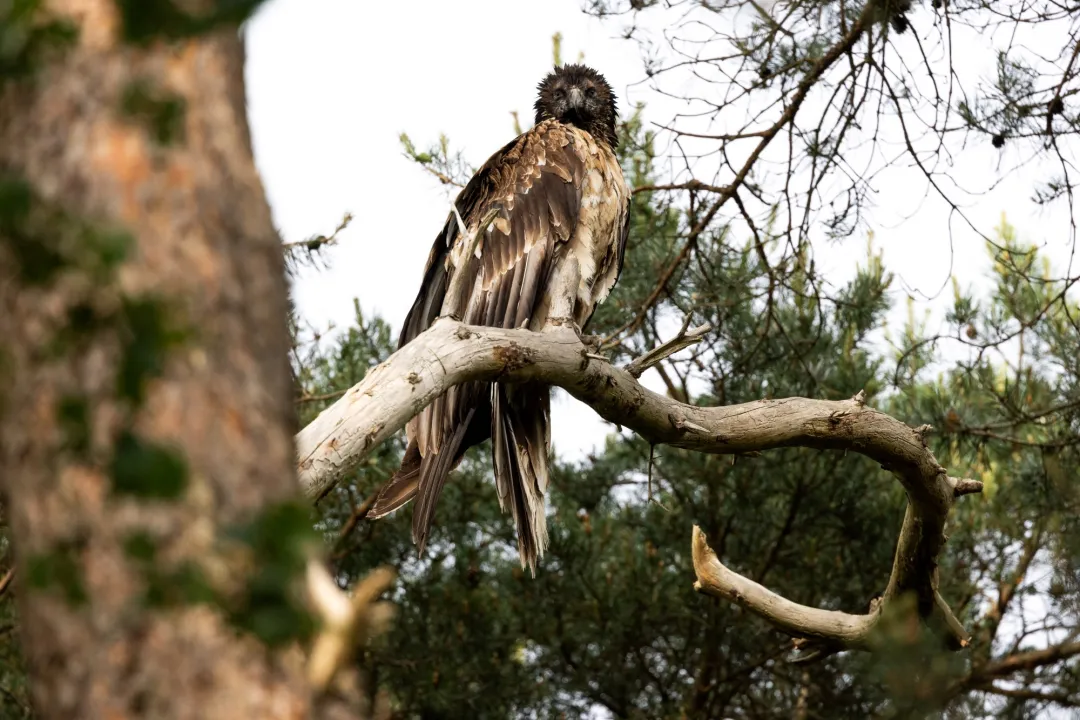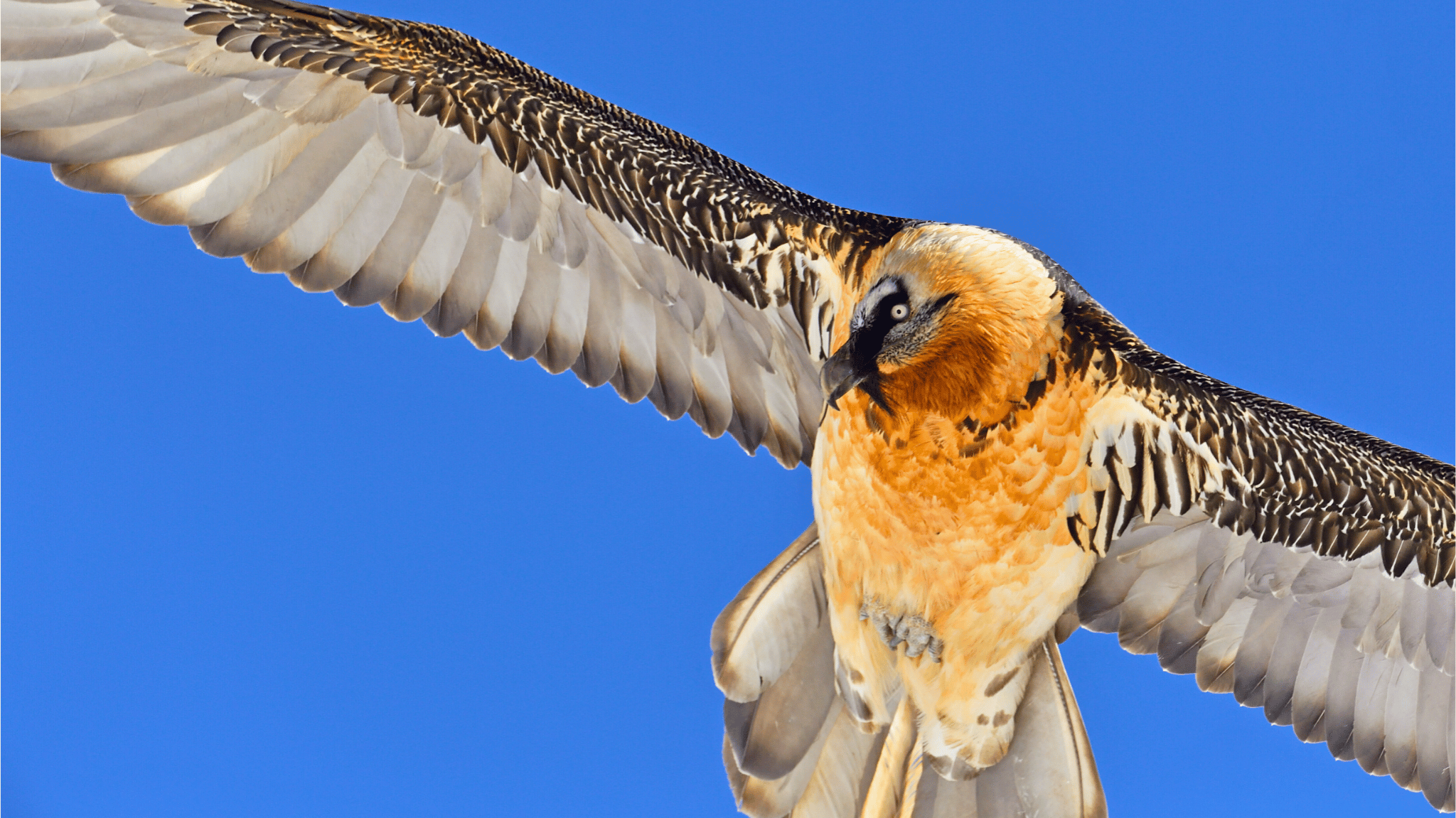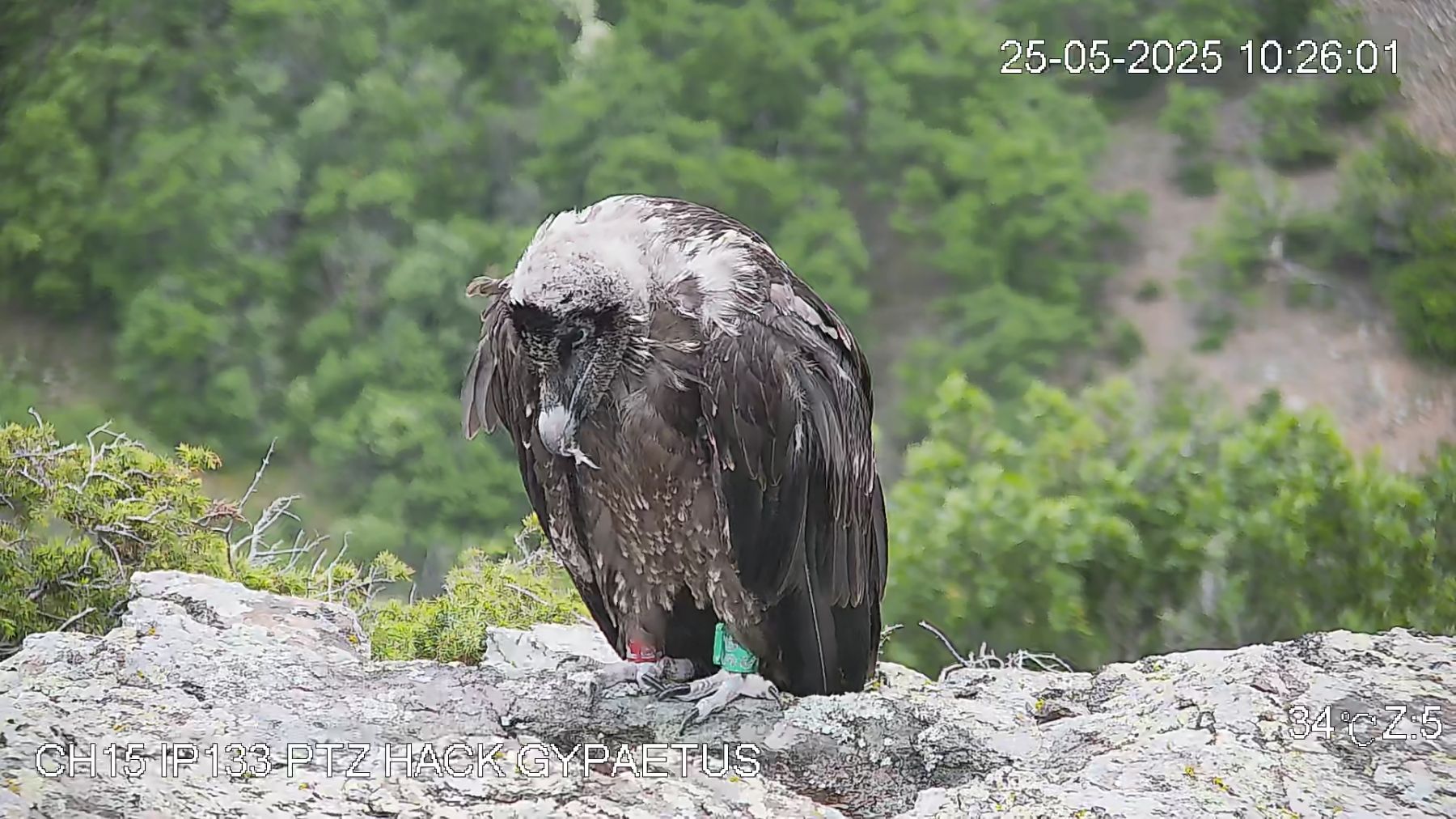Two young bearded vultures raised in captivity within the bearded vulture captive-breeding network, managed for the VCF solely for conservation purposes, are going to be released tomorrow in the valley of Niolu, in the northern Corsican mountains.
This restocking operation, coordinated by the Parc Naturel Regional de Corse (PNRC), and the VCF, with funding from the Fondation Prince Albert II de Monaco, the Barcelona Zoo Foundation and also the Collectivité Territoriale de Corse and the French government, is part of an action plan to save the extremely endangered Corsican island population of this species. The number of pairs on the island has recently dwindled to four. This small breeding population has also been breeding poorly, with only about ten fledglings produced in the last decade – last year for example there was no successful breeding, but the single young fledged in 2013 and 2014 are still alive.
The birds to be released – they will be baptized by the local schoolchildren – come from the bearded vulture captive breeding center in Guadalentín (Andalusia, managed by the local government), and from the Haringsee breeding center (co-managed by the EGS and the VCF). They will be released two weeks before fledgling in a nesting platform adapted for them in the Niolu valley, and will be fed and continuously monitored until fledgling date by the staff and volunteers from the PNRC. They will also be later equipped with satellite tags, just before flying, when their flight muscles are fully developed.
The birds travelled by land and ferry for thousands of kilometres before arriving on their new island home. They are a pair – a male and a female.
The Corsican population suffers from low genetic variability – it is isolated and with a reduced number of individuals – and also generally from lack of food, due to the progressive abandonment of the grazing in the Corsican highlands, and the low population of the Corsican moufflon. The PNRC has started a couple of years ago operating some small supplementary feeding points to try to minimize this threat, following a protocol developed by the VCF. Lead poisoning may also be a threat.
Several weeks ago the VCF and the PNRC have also collected from the wild an egg – from a pair that had not bred for the last 10 years – that was later incubated artificially. When the chick hatched it was transported to Spain to be adopted by a foster pair in Guadalentín, and this chick with others that eventually will also be raised in the following years will form a Corsican genetic reserve within the captive breeding network.



